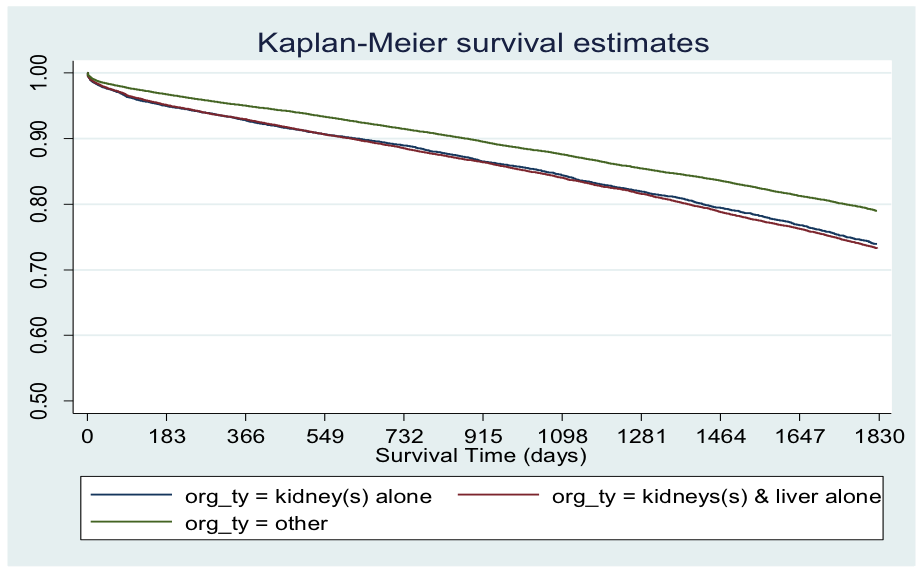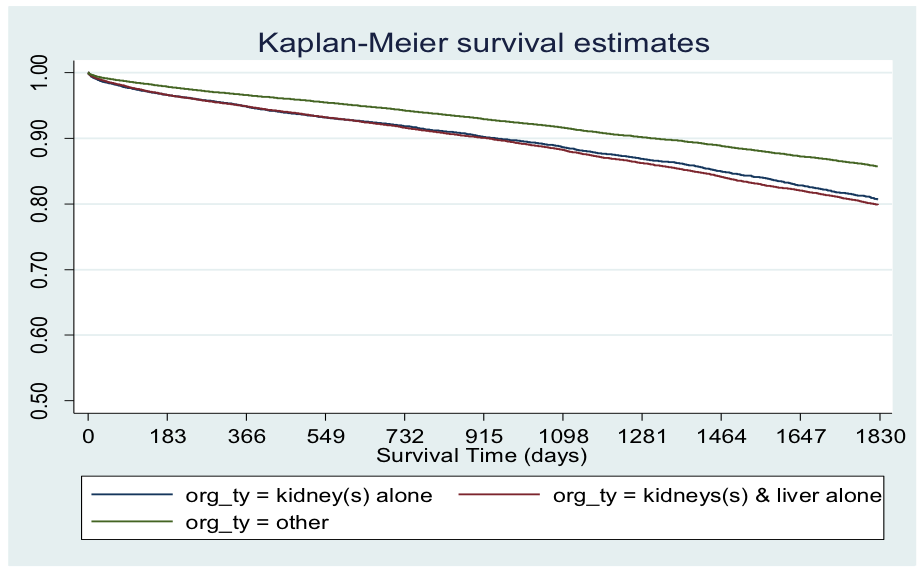Renal Transplant Outcomes of Kidney-only vs. Multi-organ Deceased Donors
1University of Toledo Medical Center, Toledo, OH, 2UC Irvine School of Medicine, Irvine, CA, 3George Mason University, Arlington, VA, 4Albany Medical Center, Albany, NY
Meeting: 2021 American Transplant Congress
Abstract number: 33
Keywords: Kidney, Kidney transplantation, Survival
Topic: Clinical Science » Kidney » Kidney Deceased Donor Allocation
Session Information
Session Name: Kidney Deceased Donor Allocation
Session Type: Rapid Fire Oral Abstract
Date: Saturday, June 5, 2021
Session Time: 4:30pm-5:30pm
 Presentation Time: 5:00pm-5:05pm
Presentation Time: 5:00pm-5:05pm
Location: Virtual
*Purpose: We sought to determine the relative outcomes of kidneys from kidney-only or multi-organ deceased donors.
*Methods: Scientific Registry of Transplant Recipients data from 2010-2019 were reviewed. Deceased donors were stratified into three groups: kidney-only donors (KOD), kidney/liver-only donors (KLOD), and multi-organ donors (MOD). The impact of donor type was evaluated using a multivariate Cox proportional-hazards model, controlling for KDPI. Primary outcome was death-censored recipient graft survival.
*Results: Recipients of KOD/KLOD were younger, more likely to be male, and less likely to be white as compared to MOD (all p<0.01). Kidney-only recipients were more likely to be prior transplant recipients and less likely to be preemptive renal transplant recipients (both p<0.01). KOD were more likely to be donation after circulatory death (p<0.01). MOD had lower KDPI as compared to kidney- or kidney/liver-only procurements (p<0.01). Kidneys recovered from MOD were associated with a 2.4% reduced risk of recipient graft failure (HR = 0.976). MOD were associated with improved recipient survival (p<0.01).
*Conclusions: Recipients of MOD grafts had better graft outcomes despite adjusting for KDPI. It is possible that more intensive perioperative monitoring of multi-organ donors, which serve to impact a greater number of recipients, is responsible for better renal graft outcomes for these recipients. These data may impact future decisions on graft allocation, and MOD status should be considered for addition to future allocation calculators.
To cite this abstract in AMA style:
Espinales J, Giffen ZC, Schneider D, James R, Koizumi N, Ekwenna O, Ortiz J. Renal Transplant Outcomes of Kidney-only vs. Multi-organ Deceased Donors [abstract]. Am J Transplant. 2021; 21 (suppl 3). https://atcmeetingabstracts.com/abstract/renal-transplant-outcomes-of-kidney-only-vs-multi-organ-deceased-donors/. Accessed February 20, 2026.« Back to 2021 American Transplant Congress


